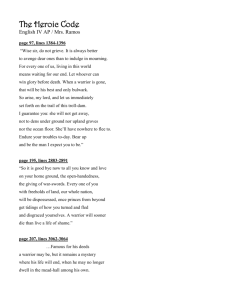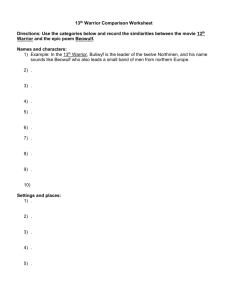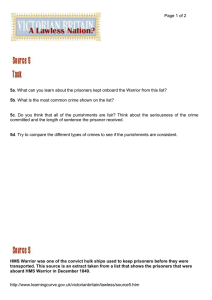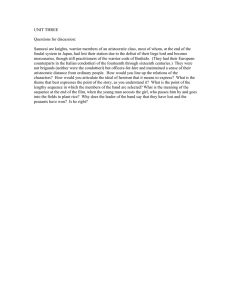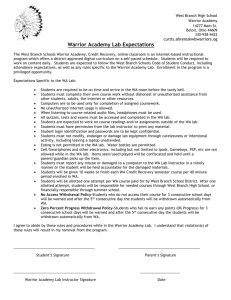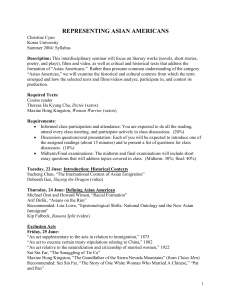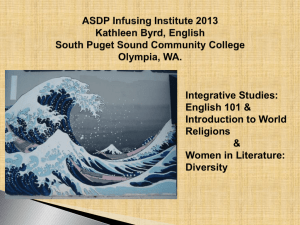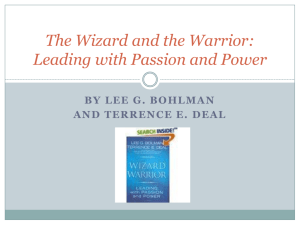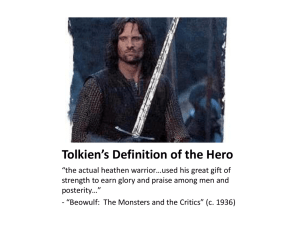Feminism and Metafiction:
advertisement
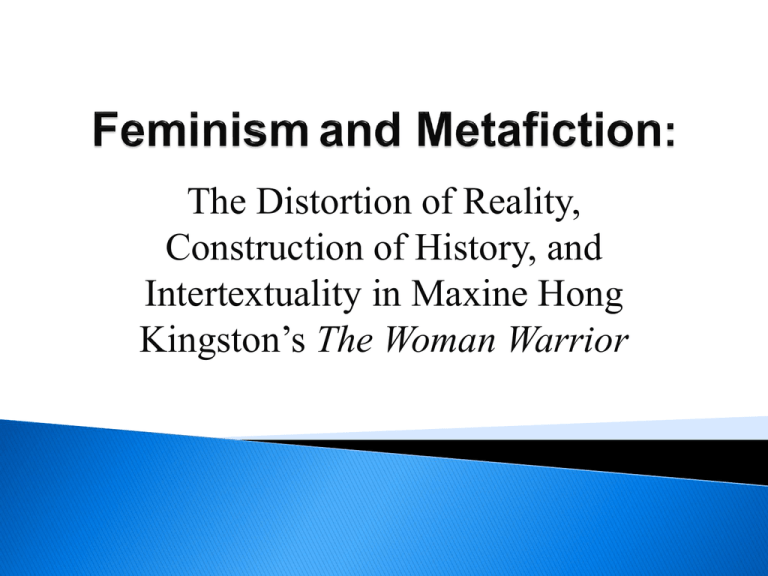
The Distortion of Reality, Construction of History, and Intertextuality in Maxine Hong Kingston’s The Woman Warrior While some existing critiques sees The Woman Warrior as a token Asian text which perpetuates exotifying and Orientalist notions of Asian identity, I am arguing that the text must be understood in its own tradition, counteracting the reductionist appropriation of the text as part of the multicultural American academy. Further, I argue that a metafictional reading of The Woman Warrior creates space for and is closely linked to an Asian American feminist perspective of the themes in The Woman Warrior. Introduction Overview 1. 2. 3. 4. 5. 6. 7. Addressing Existing Critique Metafiction Intertextuality Distortion of Reality Construction of History Conclusion Chapter 2, “White Tigers,” focuses on the popular Chinese folklore of Fa Mu Lan. Fiction versus memoir? Textual evidence [clouds as “an ink wash,” “distant peaks as if shaded by pencil,” rocks like “charcoal rubbings,” and a bird as “two black strokes”( 20)]. Dismantling binaries Subverting familiar stereotypes Creating a complex representation of Asian women A metafictional reading of The Woman Warrior creates space for and is closely linked to a feminist analyses of its themes.
